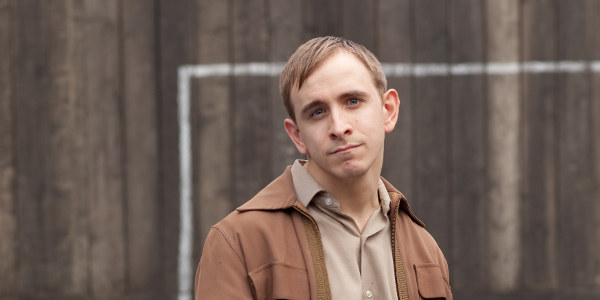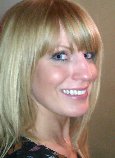In addition to the faculty of the Vanderbilt School of Nursing guest blogging for us each Monday morning about the previous night’s episode of Call the Midwife — airing on Sundays on NPT and PBS Stations nationwide at 7:00 p.m. Central, March 30-May 18 — we are thrilled to have a bonus blogger. Rachel Sykes, who did a practicum at the Vanderbilt School of Nursing in the summer 0f 2013, is a registered midwife and graduate from the University of Manchester, United Kingdom. She’s watched the show on the BBC and will provide a unique UK-perspective. She currently practices in a busy maternity unit in the Northwest of England.
SPOILER ALERT: Some posts may contain spoilers, so please be aware of that.
By Rachel Sykes
Romance blossoms this week when Reverend Herewood (Jack Ashton) and Nurse Miller (Helen George) have their first “date.” With her heels as high as her expectations, Trixie soon comes crashing down to Earth as her day at the cricket soon turns into a day of cleaning up vomit and mending a broken down vehicle. Yes, he may well be good looking, but how is he going to salvage this one? After declaring she “needed time to get over it,” the Reverend and the nurse are again reunited at the baptism of baby James Doyle, whose breathing difficulties after birth makes them take stock of the situation and certainly puts matters into perspective. Nurse Miller soon realises that silly mishaps are forgivable and we see something deeper emerge between the two of them.
Peeved and disappointed, Nurse Mount (Emerald Fennell) is seconded to the district nursing round and finds herself caring for Maurice Glennan (Neal Barry), an ex- prisoner of war. Even today, there are district nurses who work for the National Health Service (NHS) and care for those who have recently been discharged from hospital, the elderly and the terminally ill. Like the Nonnatus nurses and midwives, they have their own caseload of patients along with a wealth of skills and knowledge. Maurice’s anxiety about returning to work is a particular worry for anyone with ill health and in need of income. Fortunately for him, the NHS was in full swing by the 1950s meaning he could be treated without the worry of cost. The NHS was introduced in 1948 and is financed entirely from taxation, therefore people are able to pay according to their means. One of its main principles was good healthcare for all people, regardless of income and this remains at the core of the NHS. As a UK native, I do appreciate living in a country where healthcare is free. Some may question the quality and choice of healthcare available but as I work within the NHS and witness it first hand, I do believe the service we provide is second to none and the NHS is still going strong to this day. We have an excellent workforce of nurses, doctors, midwives and other health professionals who ought to be really proud of what they do and are a true asset to the NHS.
Patsy is a truly exceptional nurse and goes beyond the call of duty for her patient, travelling to Liverpool to collect the pioneering medicine from the Hospital of Tropical Diseases – a trip she certainly didn’t have to do, but wanted to. It is true that some people show compassion in more subtle ways. Some may be more vocal or affectionate, others may use body language or actions. What counts is the message received. Ever conscious that she comes across cold-hearted and clinical to her patients, Maurice tells her “don’t let your misfortunes find a home.” This can apply to everyone in the sense that we really shouldn’t let past experiences taint our view of ‘the now’ or future. Memories are always with us but sometimes we have to let go of who we were, to move forward and be the person we are meant to be.
Rachel Sykes is a registered midwife and graduate from the University of Manchester, United Kingdom.
Missed our analysis of the Previous Season’s Episodes? Read them here.

